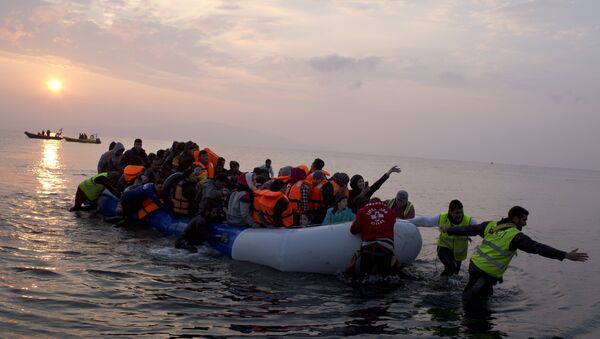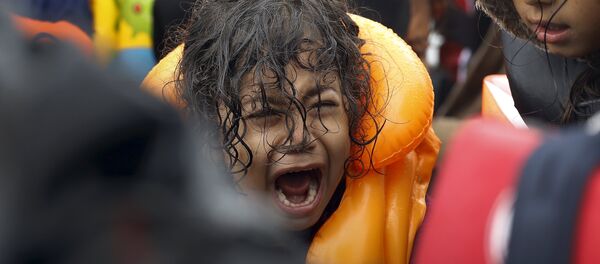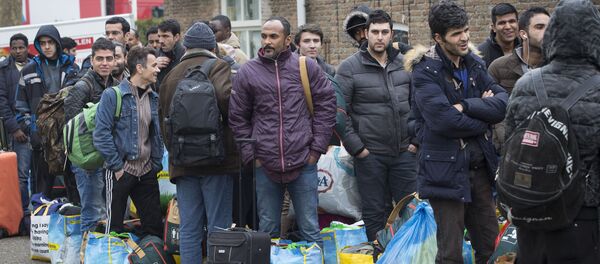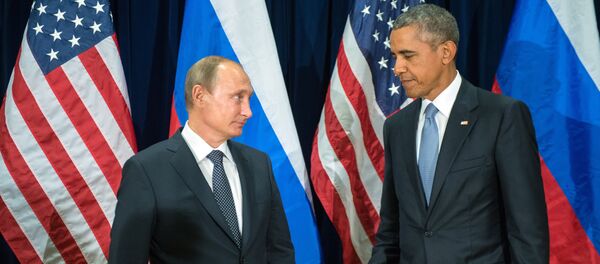He refers to the recent “revelations” of Janis Sarts, director of NATO’s Strategic Communications Centre of Excellence, based in Riga, Latvia, who claimed, without citing any evidence, that "Russia is trying to topple Angela Merkel by waging an information war designed to stir up anger in Germany over refugees."
Matthew Dal Santo also reminds that two weeks ago US General Philip Breedlove, NATO's supreme commander in Europe, told the US Senate Armed Services Committee that “Russia and the Assad regime are deliberately weaponizing migration in an attempt to overwhelm European structures and break European resolve.”
“Talk of 'weaponization' and 'regime change' increasingly bears the hallmarks of a strategy intended to shift responsibility for Europe’s 'refugee crisis' from the shoulders of an EU leadership that has proved unable to stop the flow of migrants, to Russian President Vladimir Putin’s,” explains Matthew Dal Santo.
Blaming the influx of refugees into Europe on Russia's military operations in Syria, top NATO commanders conveniently forgot to mention that the refugee inflow into Europe started long before Russia launched its military campaign in Syria.
“When Russia’s Syria air campaign began on September 30, migrant arrivals had long since overwhelmed frontline states like Greece,” the author says.
At the United Nations last September, President Putin condemned open-ended Western military campaigns in Afghanistan, Iraq, Libya and Syria, often justified in the name of “democracy promotion.”
Vladimir Putin did not see this as something to be celebrated.
“There were hundreds of thousands of them now, and there might be millions before long. In fact, it is a new great and tragic migration of peoples, and it is a harsh lesson for all of us, including Europe,” the Russian leader then said.
“Indeed, Russia’s military support for government forces in Syria may turn out in the long run to have played a crucial role in stemming refugee flows to Europe. Heading off the possibility of Damascus’s fall to ISIS (Daesh) last autumn, Russia laid the groundwork for the recent ceasefire agreements that hopefully foreshadow the conflict’s long-overdue political resolution. This has now allowed Moscow to announce the withdrawal of the bulk of its forces,” Dal Santo therefore explains.
Rightly or wrongly, the “migrant crisis” has become emblematic of the European Union’s inability to guarantee the safety and security of its citizens. Even in the wake of its recent agreement with Turkey, the flow of refugees seems likely to continue, he adds.
However, he suggests, if the Kremlin is funding parties opposed to Merkel, then this would represent Russia’s (rather late) conversion to practices Western governments have long employed in support of Russia’s so-called “opposition.”







